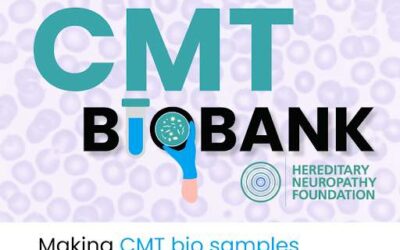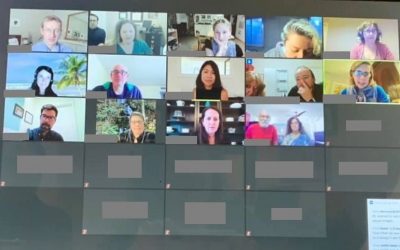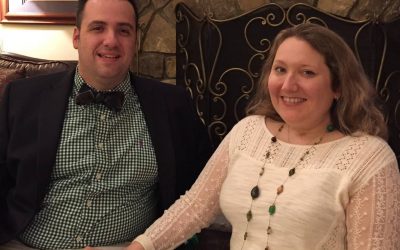CMT2C is axonal peripheral sensorimotor neuropathy with onset as early as infancy and is characterized by the association of vocal cord paresis including respiratory (diaphragm) muscle impairment, hearing loss, leg, arm and hand weakness and paralysis. CMT2C is closely related to allelic disorders Scapuloperoneal Spinal Muscular Atrophy and Congenital Distal Spinal Muscular Atrophy, with many shared and overlapping symptoms (these three clinical disorders are often considered one disorder, TRPV4 related Hereditary Neuropathy, with a spectrum of severity).
HNF Research Initiatives
Natural History Studies
The Global Registry for Inherited Neuropathies (GRIN)
The Global Registry for Inherited Neuropathies (GRIN) was developed in 2013 to stratify large groups of patients for all types of CMT to gain a deeper understanding of CMT. This important data also allows HNF to better identify the burden, diagnostic journey, and prevalence of CMT that will aid TRIAD research partners.
Patient data = Improved Research & Clinical Trial Design.
CMT&Me App
A smartphone digital study sponsored by Pharnext Pharmaceuticals in collaboration with HNF, other CMT advocacy groups and experts in six countries to collect real-world anonymised data from adults (≥18 years) living with CMT. The aggregated data is available in close to real time, via dashboards and is analyzed based on pre-set criteria (ie. diseases stage, daily symptoms, age, demographics) to understand the real-world impact of CMT and the unmet needs of patients.
If you don’t know your CMT type, you can find out from the HNF through The CMT Genie Program.
www.cmtgenie.orgUpdate on NMD Pharma Clinical Trial
NMD Pharma Initiates Phase 2 Study of NMD670 in Patients with Charcot-MarieTooth Disease Type 1 and 2 NMD Pharma A/S, a clinical-stage biotech company dedicated to developing novel and improved treatments for patients living with neuromuscular diseases, announces that...
2025 CMT Roadshow Coming to a City Near You?
Do you want to make a difference in CMT research? HNF is looking for patients with a confirmed CMT diagnosis to participate in the CMT Biobank
TRPV4 Hereditary Neuropathy Patients Connect with Johns Hopkins Experts to Push Research Efforts Forward
Community connected with the TRPV4 HN team at Johns Hopkins
Why I’ll be attending the “Voice of the Patient Weekend” A Patient’s Perspective
I am attending HNF’s “Voice of the Patient” Weekend 2018 to tell the FDA and other stakeholders how TRPV4 HN impacts my life.
The Long Road to Diagnosis Renews Dedication to Advocacy
Growing up we called it “Steffi disorder.” My friends and family were as baffled as my expert neurologists. I had been diagnosed with typical Spiral Muscular Atrophy (SMA) as a toddler but never followed its progression; I never seemed to get weaker. My myriad of symptoms was distinctly different than anyone else’s I had ever met in a lifetime living in the neuromuscular community. I thought I might never find my true diagnosis, let alone others who share it with me.






